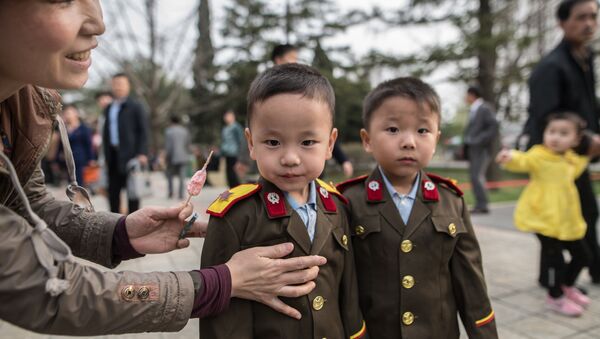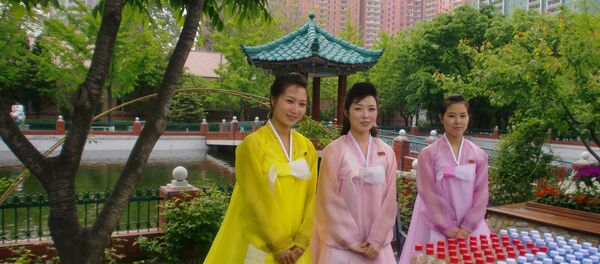The cult of education is, in particular, reflected in the Korean proverb, "Don't save money but teach children how to read and write."
In 2013, North Korea introduced a new system of school education, which stipulates kids going to school at the age of seven. They spend a total of 11 years in school prior to attending university: five in elementary school, three in middle school and another three in high school.
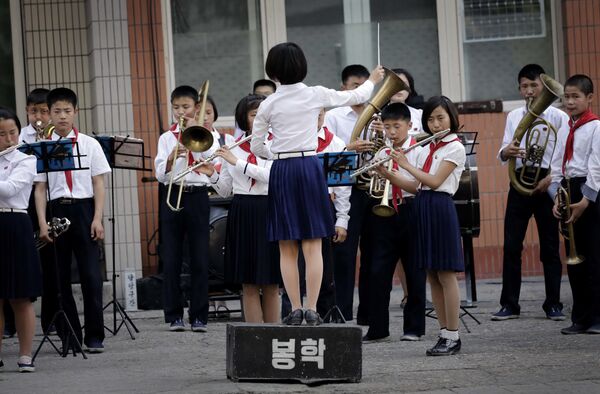
Upon receiving their certificate of completion, graduates can go either to college, university or a vocational school.
Notably, an ideological aspect of their education is already in place in kindergarten where children build models of former North Korean leader Kim Il-sung's house.

During math class in school, pupils typically resolve a spate of similar tasks with political undertones, including questions such as, "How many American spies have been caught by the pioneers?" according to Russian expert on North Korea Andrey Lankov.
British journalist Michael Breen, for his part, cited an example of a table of conjugation of verbs, North Korean-style, which mentions North Koreans fighting the Yankees.
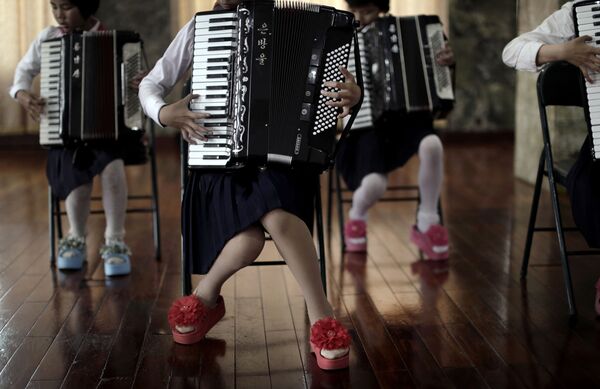
North Korea borrowed from the idea of an extended school day from the USSR, which is why North Korean children spend almost the entire day at their school's public circles and organizations, such as the Union of Socialist Labor Youth and the Youth Red Guard.
Social and political disciplines occupy about one-third of the curricula's schedule. Schoolchildren study the history of the revolutionary activities of "Our Supreme Leader Kim Il-sung," "Our Great Leader Kim Jong-il," "Our Mother Kim Jong-suk" and "Our Dear Leader Kim Jong-un."
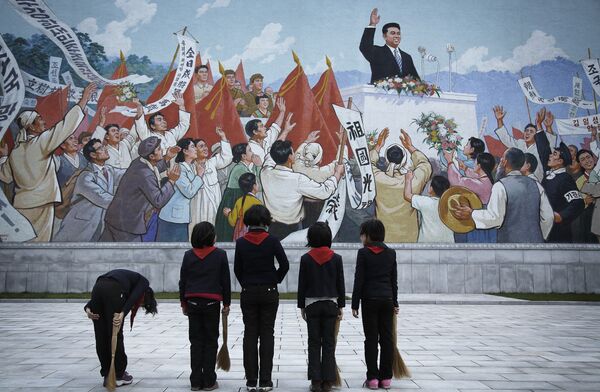
Other subjects include history and geography of Joseon (the name of Korea until 1897), Korean literature, psychology and logic, the Korean and English languages, as well as mathematics, science and physical education.
In North Korean education, special attention is paid to memory training, the development of physical and psychological perseverance and the ability to organize one's time. The purpose is to help children become devoted revolutionaries in line with the doctrine developed by Kim Il-sung.

Andrei Lankov identified at least three elements of North Korean ideological preparation, including high intensity, information isolation and stability. It often appeals to emotions and actively exploits national myths and revolutionary images.

A constant threat of war finally led to the fact that the education system in North Korea is extremely militarized. Schoolchildren are engaged in drill training, take courses in civil defense, as well as undergo practice in military units during their summer holidays.
Additionally, there is a system of elite schools for gifted children between the ages of three and five who are given a specialized targeted education, mostly technical. The graduates of these schools, who are seen as the future intellectual elite of North Korea, work in closed research institutes and remain the personnel basis of the country's leadership.

